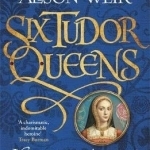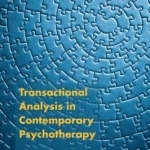
Transactional Analysis in Contemporary Psychotherapy
Book
After fifty years of development and refinement in Transactional Analysis (TA), the theory of...
The Disguised Ruler in Shakespeare and His Contemporaries
Book
In the early seventeenth century, the London stage often portrayed a ruler covertly spying on his...
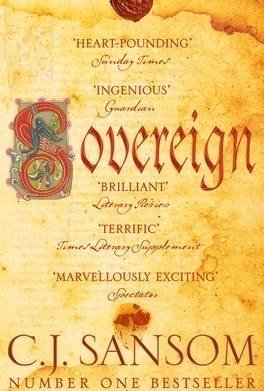
Sovereign
Book
Following on from Dissolution and Dark Fire, Sovereign is the third title in C. J. Sansom's...

Dry Stone Walls: History and Heritage
Book
Dry stone walls create much of the character of upland landscapes across Britain. How do we go about...
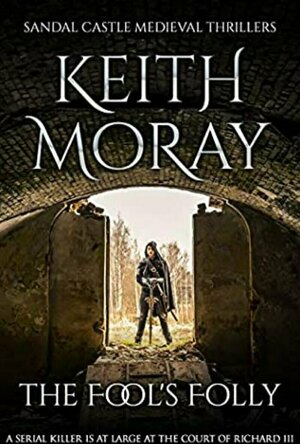
The Fool’s Folly
Book
A gripping Yorkshire historical thriller you won’t be able to put down! Perfect for fans of S D...
Historical fiction Medieval England Richard III
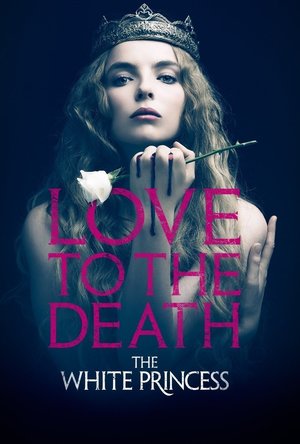
The White Princess
TV Show Watch
In a tale of power, family, love and betrayal, "The White Princess" -- adapted from Philippa...

Secret Gardens of East Anglia
Barbara Segall and Marcus Harpur
Book
The big skies and the extraordinary light of East Anglia make it unlike anywhere else in Britain,...
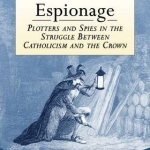
Elizabethan Espionage: Plotters and Spies in the Struggle Between Catholicism and the Crown
Book
In the wake of the 1588 destruction of the Spanish Armada, English Catholics launched an ingenious...
Lyndsey Gollogly (2893 KP) rated Katherine of Aragon, the True Queen in Books
Sep 6, 2021
Book
Katherine of Aragon the true Queen ( Six Tudor Wives)
By Alison Weir
Once read a review will be written via Smashbomb and link posted in comments
A Spanish princess. Raised to be modest, obedient and devout. Destined to be an English Queen.
Six weeks from home across treacherous seas, everything is different: the language, the food, the weather. And for her there is no comfort in any of it. At sixteen-years-old, Catalina is alone among strangers.
She misses her mother. She mourns her lost brother.
She cannot trust even those assigned to her protection.
KATHERINE OF ARAGON. The first of Henry's Queens. Her story.
History tells us how she died. This captivating novel shows us how she lived.
It took me a bit longer than normal to finish this book I really enjoyed it but came away feel so sad for Katherine. I’m fascinated with this period of history and she is one queen who always hits the heart when I read her story. This is one of the best ones I’ve read so far and knowing Alison kept as close as possible to history made me even more sad. Something about the princesses of Wales they always get dealt a hard blow by the monarchy. Overall it was a beautifully written version of her. Looking forward to reading Anne’s next.
Deborah (162 KP) rated Richard III: The King in the Car Park in Books
Dec 21, 2018
I will admit that with pro-Ricardian sympathies I was probably never going to like this book, but it is a bit of a mess and feels like another case of jumping on the bandwagon. There is no index, no footnotes/endnotes and only a partial list of sources, which is enough to raise questions about academic rigour. If you are going to publish opinions, particular in The Great Debate, these really should be backed up by factual evidence. I think I am most irked by the hypocrisy of Mr Breverton telling us at one point that he is going to take a fresh impartial look at the subject and then immediately showing us exactly which colour he prefers his roses.
His list, near the back of the volume, of all the 'crimes' he thinks Richard III was guilty of really does teeter on the brink of blindness and absurdity. Apparently he is guilty in the case of the Earl of Warwick, son of Richard's older brother, George of Clarence, but whose claim to the throne was barred by his father's attainder (always reversible, but Warwick was then only a child of about 8 years). I'm pretty sure this Warwick was sent to Sheriff Hutton Castle to be brought up with other young persons, as befitted his status by Richard. Of course, as soon as Henry Tudor usurped the throne, this boy was locked up in the Tower only to be executed later on a trumped up charge. I think I know who the guilty party is in that case.
That is my frank opinion on this volume; I will now expect said author to savage me as he has everyone else on Amazon who has pointed out the self-evident shortcomings in this work.

